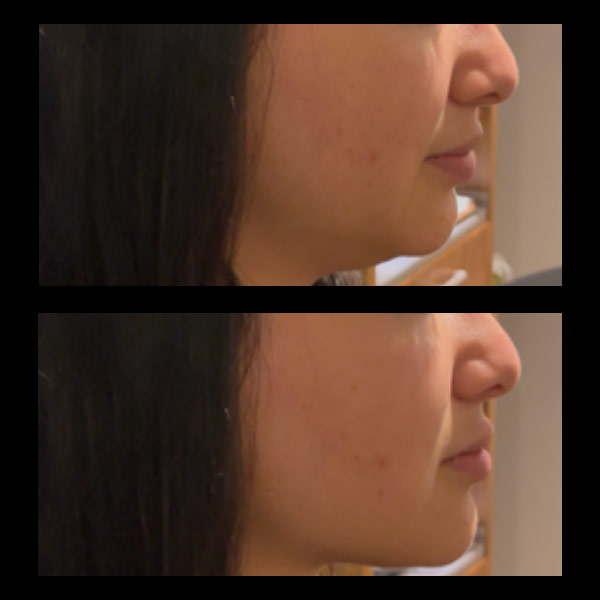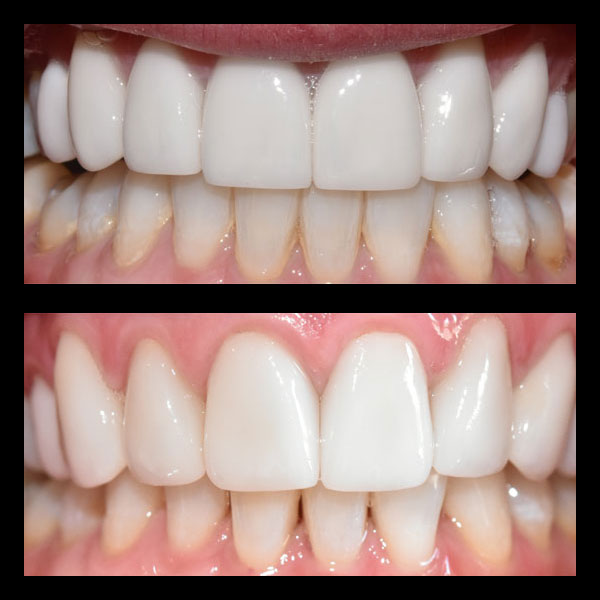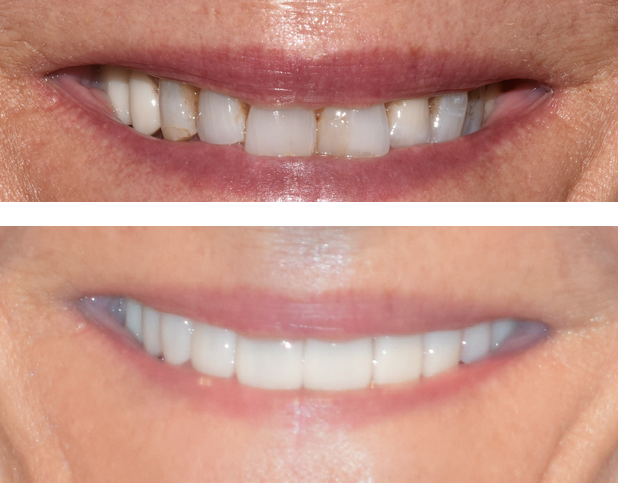Transform Your Smile and Confidence by Addressing Bite Misalignment
A radiant smile is often the first thing people notice, and its beauty goes beyond just the color of your teeth. The way your teeth align – your bite – plays a crucial role in both the aesthetics of your smile and your overall oral health. One common but often misunderstood bite issue is a crossbite. This condition, where upper teeth fit inside the lower teeth, can affect not only how your smile looks but also its functionality. At Incredible Smiles in Boulder, we specialize in identifying and treating bite misalignments like crossbites, helping you achieve a smile that is both beautiful and healthy.
Understanding Crossbite: More Than Just Crooked Teeth
A crossbite is a type of malocclusion, or misalignment of the teeth, where some of your upper teeth sit inside your lower teeth when you bite down. This can happen with front teeth (anterior crossbite), back teeth (posterior crossbite), or a combination of both. It can also affect one side of the mouth (unilateral) or both sides (bilateral). Unlike an overbite (where upper teeth significantly overlap lower teeth) or an underbite (where lower teeth protrude past upper teeth), a crossbite involves a lateral misalignment.
The causes of crossbite are varied. Genetic factors often play a role, meaning if your parents had a crossbite, you might be more susceptible. Other causes include:
- Delayed loss of baby teeth
- Abnormal eruption of permanent teeth
- Habits like prolonged thumb sucking or pacifier use
- A narrow upper jaw or a wide lower jaw
- Discrepancies in jaw growth
It’s important to recognize that a crossbite isn’t just a cosmetic concern; it can lead to various functional and health issues if left unaddressed.
The Impact of Crossbite on Smile Aesthetics and Facial Symmetry
A harmonious smile is characterized by balance and symmetry. A crossbite can disrupt this harmony in several ways:
Facial Asymmetry
One of the most significant aesthetic impacts of an untreated crossbite is facial asymmetry. The imbalance in jaw and tooth position can affect the overall facial appearance, potentially leading to an uneven jawline, chin, or smile. This can be particularly noticeable in unilateral crossbites, where one side of the jaw may develop differently. Over time, this asymmetry can become more pronounced and even affect self-esteem.
Uneven Smile Line
A crossbite can cause your smile line – the line created by the edges of your upper teeth – to appear uneven or canted. This can detract from the overall attractiveness of your smile, making it look less balanced.
Irregular Tooth Display
With a crossbite, some teeth may appear hidden or overshadowed by others due to the improper alignment. This can make your smile look crowded or incomplete.
Impact on Facial Profile
Depending on the type and severity, a crossbite can also influence your facial profile. For example, an anterior crossbite might make the upper lip appear sunken. Conversely, correcting a crossbite can enhance facial proportions and contribute to a more balanced profile.
Beyond Aesthetics: The Functional Implications of Crossbite
While the visual impact of a crossbite is a primary concern for many, the functional problems it can cause are equally important to address. Correcting a crossbite not only improves your smile’s appearance but also enhances its functional capabilities and long-term health.
Chewing Difficulties
Misaligned teeth may not meet correctly, leading to inefficient chewing. This can cause you to favor one side of your mouth, leading to uneven wear on teeth and potential muscle imbalances.
Uneven Tooth Wear
A crossbite can cause abnormal stress on certain teeth, leading to premature and uneven wear of tooth enamel. This can result in tooth sensitivity, an increased risk of cavities, and even fractures.
Jaw Pain and TMJ Disorders
The misalignment from a crossbite can strain the jaw joints (temporomandibular joints or TMJ) and surrounding muscles. This can lead to jaw pain, headaches, clicking or popping sounds in the jaw, and the development or exacerbation of TMJ disorders.
Gum Problems and Tooth Decay
Misaligned teeth can be harder to clean effectively, creating areas where plaque and bacteria can accumulate. This increases the risk of gum disease (periodontal disease) and tooth decay. You can learn more about our periodontal therapy options if you are experiencing gum issues.
Speech Difficulties
In some cases, a crossbite can affect the position of the tongue and airflow, potentially leading to speech impediments like lisping.
How Crossbite Correction at Incredible Smiles Improves Your Smile
At Incredible Smiles in Boulder, we offer comprehensive solutions for crossbite correction, tailored to your individual needs. Our goal is to restore both the beauty and function of your smile. Correcting a crossbite offers numerous benefits:
- Improved Facial Symmetry: Aligning the teeth and jaw properly can help balance facial features and create a more harmonious appearance.
- Enhanced Smile Aesthetics: A corrected bite leads to a more even smile line and appropriate tooth display, significantly boosting your smile’s attractiveness and your confidence.
- Better Oral Function: Proper alignment allows for more efficient chewing and can alleviate speech difficulties.
- Reduced Wear and Tear: Evenly distributed biting forces prevent premature wear on teeth.
- Alleviation of Jaw Pain: Correcting the bite can relieve strain on the TMJ, reducing pain and discomfort.
- Improved Oral Hygiene: Straighter teeth are easier to clean, lowering the risk of cavities and gum disease.
- Long-Term Dental Health: Addressing a crossbite proactively can prevent more significant dental problems and associated costs in the future.
Treatment options can vary depending on the severity of the crossbite, your age, and your specific dental structure. Common approaches include:
- Orthodontic Treatments: Invisalign clear aligners or traditional braces can gradually move teeth into their correct positions.
- Palatal Expanders: Often used in children and adolescents whose jaws are still developing, these devices widen the upper jaw to correct a posterior crossbite. Incredible Smiles offers expansive orthodontics to address these specific needs.
- Restorative Dentistry: In some cases, restorative treatments like dental crowns or veneers can be used to improve bite and aesthetics for minor crossbites, often in conjunction with other therapies.
- Jaw Surgery (Orthognathic Surgery): In severe cases, particularly in adults with skeletal discrepancies, surgery may be required to reposition the jaws.
The Incredible Smiles Approach to Bite Optimization in Boulder
Here in Boulder, Colorado, the team at Incredible Smiles, led by Dr. Priya Uppal and Dr. Lori Kemmet, is dedicated to providing advanced bite optimization and aesthetic dentistry. We understand that a healthy, functional bite is the foundation of a truly incredible smile. Our practice utilizes state-of-the-art technology, including 3D cone-beam imaging and neuromuscular diagnostics, to accurately diagnose bite issues like crossbites.
Our approach is rooted in physiologic dentistry, which focuses on the harmonious relationship between your teeth, jaw joints, and muscles. This ensures that your crossbite treatment not only improves the appearance of your smile but also promotes long-term stability, comfort, and an enhanced quality of life. We take the time to understand your unique concerns and goals, creating a personalized treatment plan that aligns with your needs. Our spa-like environment is designed to make your experience as comfortable and relaxing as possible. If you’re looking for “crossbite correction Boulder,” you’ve come to the right place.
Ready to Transform Your Smile?
If you suspect you have a crossbite or are unhappy with the alignment and aesthetics of your smile, don’t wait. Early intervention often leads to simpler and more effective treatment. Contact Incredible Smiles in Boulder today for a comprehensive evaluation. Let us help you achieve the beautiful, functional, and confident smile you deserve.
Explore our before & after gallery to see the transformative results we achieve for our patients.
Frequently Asked Questions (FAQ)
What is a crossbite?
A crossbite is a dental misalignment where one or more upper teeth bite on the inside of the lower teeth. It can affect front or back teeth, on one or both sides of the mouth.
How does correcting a crossbite improve my smile’s appearance?
Correcting a crossbite can improve facial symmetry, create a more even smile line, ensure proper tooth display, and enhance your overall facial profile, leading to a more aesthetically pleasing smile.
Can a crossbite cause other health problems?
Yes, untreated crossbites can lead to chewing difficulties, uneven tooth wear, jaw pain, TMJ disorders, an increased risk of gum disease and tooth decay, and even speech problems.
What are the treatment options for a crossbite in Boulder?
Treatment depends on the severity and cause. Options at Incredible Smiles include orthodontic treatments like Invisalign, palatal expanders (expansive orthodontics), restorative dentistry, and, in severe cases, referral for jaw surgery. Early consultation is key. You can explore our dental services for more information.
Is crossbite treatment painful?
Some discomfort may be experienced as your teeth and jaw adjust, especially at the beginning of orthodontic treatment. However, modern dental techniques aim to make the process as comfortable as possible. At Incredible Smiles, we prioritize patient care and comfort.
Glossary of Terms
- Malocclusion: The misalignment of teeth or incorrect relation between the teeth of the two dental arches.
- Anterior Crossbite: A crossbite affecting the front teeth, where upper front teeth sit behind lower front teeth.
- Posterior Crossbite: A crossbite affecting the back teeth, where upper back teeth sit inside lower back teeth.
- Unilateral Crossbite: A crossbite affecting only one side of the mouth.
- Bilateral Crossbite: A crossbite affecting both sides of the mouth.
- Palatal Expander: An orthodontic device used to widen the upper jaw (palate), often to correct posterior crossbites.
- Temporomandibular Joint (TMJ): The joint connecting your jawbone to your skull, responsible for jaw movement.
- Physiologic Dentistry: A dental approach focusing on the harmonious relationship between the teeth, jaw joints, and muscles for optimal function and health. Details can be found on our page about Physiologic Dentistry.
- Orthognathic Surgery: Surgical correction of skeletal deformities of the jaws.








